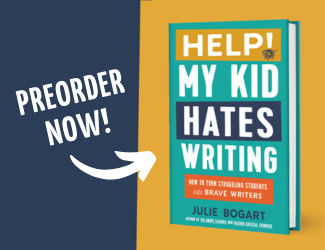Like pearls on a necklace
It’s not unusual to feel muddled when you think about what the best course of home education is for your children. There are competing promises among the many choices.
freedom
depth
flexibility
“children learn best when children decide what, when, and how they will learn, and for what purpose”
advanced academic preparation
mentoring
“inspire, not require”
connections between subjects
personalized education
“a well trained mind”
“a science of relations”
character building
religion-free, multicultural, world citizen
“literature-rich, Christ centered”
“open-and-go”
structured and thorough
comprehensive
parent-led
child-led
I’m sure you can add quotes and slogans of your own.
With the advent of the Internet, there are even more homeschooling groups, websites, blogs, forums, email lists, and Facebook groups than ever. Each promises a happy, well-educated, well-adjusted child at the end of the journey.
What happens when you explore is that the advocates of any system typically believe in their system so thoroughly, they disregard the value of any other system.
When you make a choice to adopt a specific program or plan (even if the “plan” is to let go of the “plan”!), the initial experience is often like trying to join a marathon in progress, only you’ve never done the training. You get tired, you say the wrong thing, you do the wrong thing… while the trained runners whiz by you.
Missteps and misunderstandings of the principles lead to strong exhortations on the part of the advocates: everything from advice-giving, to figurative hand-slaps, to humiliations.
Even when you earnestly seek to apply the principles in their entirety, if you run aground (have struggles, find that the method isn’t working for one of your children, or discover that you aren’t having the success you envisioned), sometimes you’re blamed for not applying the principles correctly, or enough, or with the right tone of voice, or according to the right schedule (or lack of it!).
Learning how to live according to a vision someone else cast is demanding. No two people understand the vision the same way. Add your family to the mix (where you’ve done all the research, and they’ve typically done none), and you have a recipe for confusion—particularly during the transition away from one paradigm to another.
Parenting and education are broad categories. There is no one (single) way to bring children into adulthood as learned people. We know this because the world over uses a variety of parenting and educational strategies, and the world embodies brilliant minds and close connected families in cultures completely different from ours.
Our goal can’t be to find the right set of tools, or the right ideology, or the right system. It can’t be to advocate so righteously for one method that we overlook the benefits or valuable insights of another.
Any philosophy that adopts the viewpoint that if you experience “failure” or struggle, you aren’t doing it right, is in danger of putting ideas ahead of people. No one lives any belief system so purely that they never run up against the limits of that perspective.
In fact, I’d go so far as to say that all perspectives have limits—and all people have limited abilities to carry out their best intentions.
Examining your principles is a good place to start (principles are easier to live by than rules). But purists can turn principles into rules… so be careful.
Your best bet is to be gentle with yourself and to surround your homeschool life with people who are advocates for *you* more than your philosophy of education or parenting. You should have room to air your confusion, your mistakes, your failures, and your successes. You shouldn’t have to pretend to live up to the ideals of the group in order to participate. You shouldn’t be subjected to unkind scrutiny for the sake of being a lesson for others.
It is possible to get value from a perspective, even if you don’t adopt all of it.
It’s possible to use a style of education for a few years, and then try something else for a few years just to change up the energy in your home.
It’s great to read the powerful arguments for a variety of educational theories so that you avoid getting into a rut of thought where you make one view “all bad” and have to defend your view as “all good.”
These are rarely useful ways to evaluate.
Lastly, some seasons demand different styles of home education for everyone’s peace of mind. Families dealing with chronic or terminal illness in a parent will necessarily approach home education differently than those with parents fully functioning.
What matters—what will matter most to you in the end—is the feeling that the people you love consider home and education to be pleasant, peaceful, and life-giving. No family or home feels like that all the time in any philosophy. Many philosophies help you get there. Most often, the philosophy is only as good as the emotional health of the parents anyway.
Your goal is to string together (like pearls on a necklace) moments where you can say, “Today was a good day together and we learned something too.”
When these accumulate, life starts to hum. Don’t worry so much about how you got there. Enjoy it while it lasts. Note it. Be proud of it. Don’t doubt it.
Weirdly, that’s enough—whether you co-sleep or bottlefeed or homeschool or put your kids on a yellow bus.
Love in the home, created by conscientious parents, who take education seriously (in any of its myriad forms), is what we all want.
Go forth into your homeschool this morning and enjoy whatever philosophy it is that has your fascinated today.
Cross-posted on facebook.


















